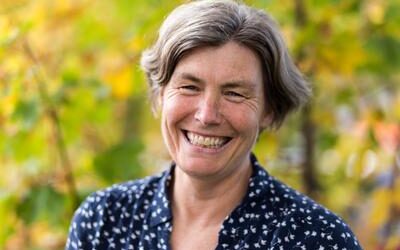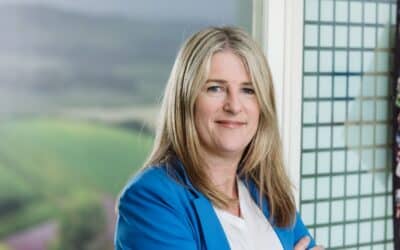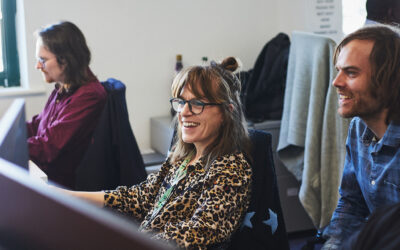Reflections on LGBTQ+ Inclusion: Part two
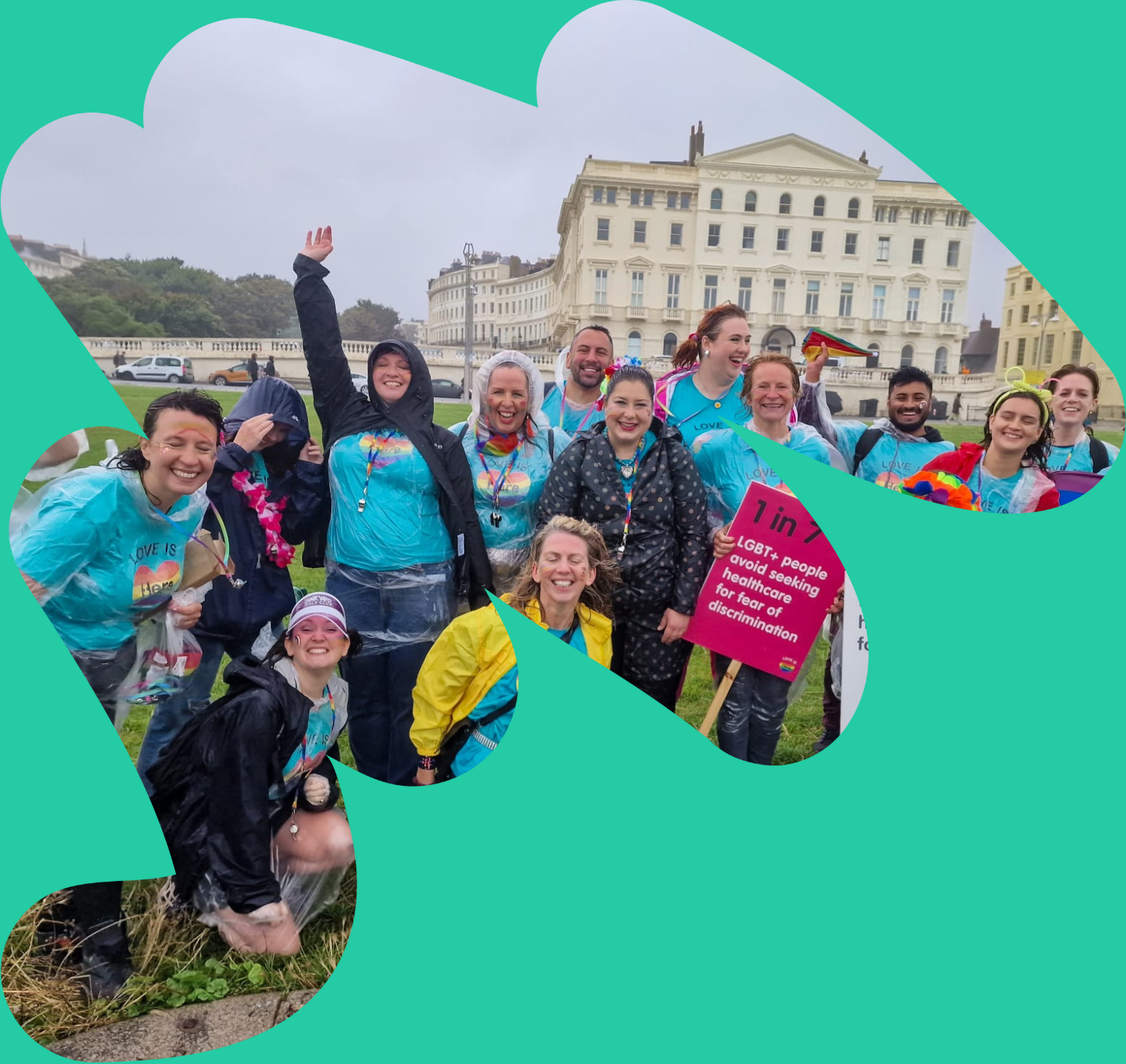
Following a recent Here is Learning on LGBTQ+ Inclusion we shared the reflections from two of the attendees, where they discussed their identity and the obstacles they face living in a heteronormative world.
Here are two more stories from our colleagues who kindly offered to share their experience.
We were so proud and humbled to hear colleagues’ experiences and the openness and curiosity from their peers in the room. Inclusivity is fundamental to the work that we do and helps us to learn and collaborate to make better decisions with better outcomes.
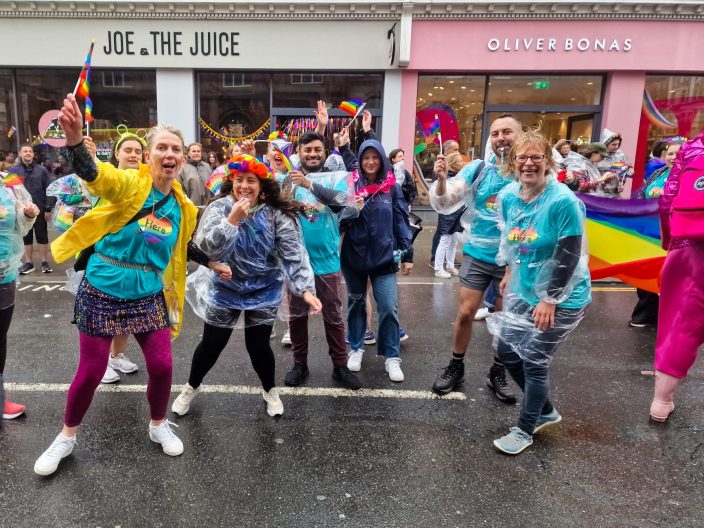
Claire’s reflections
‘I recently completed LGBTQ+ awareness training. I found it way better than expected as it really made me think about my own unconscious biases towards people – from a variety of backgrounds. We all have them but it’s useful to shed a non-judgemental light on them and be more aware.
Some of the exercises really had me think about the way I have treated others and where I may not have been as understanding as I could have been.
There was also an exercise that had me really see the absolute wealth of areas of life and situations that can be impacted by being outside of society’s norms and how isolating that must make you feel. Even just the simple act of holding your partner’s hand in public! Imagine having to consider whether or not you can do that?!!’
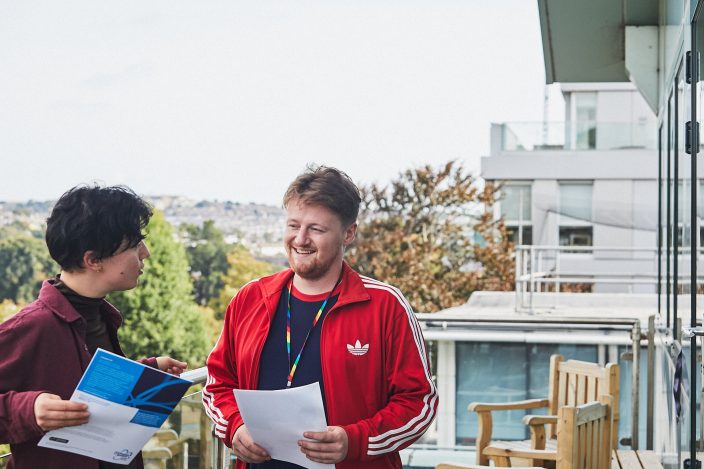
Sarah’s reflections
“It’s rare for me to be asked to discuss my experiences of being a lesbian, not from the perspective of being a patient or employee, anyway. And at work too! But that’s a good example of what working at Here is like.
Looking back to the 80s, 90s and 00s, I can see that a lot certainly has changed for LGBTQ+ rights – people’s perceptions of what it’s like to be a gay woman, what my lifestyle might be like, and the fact that my life is quite similar to a heterosexual person’s can still be a surprise to some.
I’ll sometimes recount stories of confused conversations I’ve had (inside and outside of a healthcare setting) around my sexuality with a light tone, because quite often, they are amusing, but there’s something about their frequency and predictability that over time changes the humour to sadness.
It would be wrong of me to say that ignorance, fear and hate of LGBTQ+ people is a rare occurrence, even in Brighton, because it’s not.
Feeling ‘other’ is common to the many LGBTQ+ people I know. Laws, TV, forms, doctor’s appointments all tell us that heteronormativity (the conscious or unconscious perception that heterosexuality is the default) is alive and well. I am required to make several mental leaps to make questions on forms fit my circumstances.
I make the decision whether to come out to work colleagues or complete strangers while making small talk in the office kitchen, as well as at blood pressure checks and a GP appointment to talk about an earache – “what contraception are you using, could you be pregnant?” Seems like a simple, if sometimes an irrelevant question to ask, but the simple answer highlights a significant part of what makes me me, and risks it being (or feeling like) a potentially uncomfortable confrontation.
When we read news reports from the UK and around the world (BBC LGBT News) where the LGBTQ+ community are experiencing mental and physical harm, sometimes death – does it still feel simple?
My upbringing and later experiences have all shaped how I think and feel about being a lesbian. Where my school sex education didn’t apply to me, I’m asked what my husband does for a living, or when the nurse calls through the curtain after disclosing my sexuality and before a smear test to ask, “but you have had sex, haven’t you?”, all mean that I still sometimes feel the need to lie or omit or avoid talking about certain subjects. And all of these things can be roadblocks to me getting the healthcare I deserve.
I won’t attempt to suggest a solution, but what I can do is describe the impact that being invited to share my experiences at work have had on me.
I can tell you about unexpectedly feeling compelled to tell my story, the anxiety and surge of emotion I felt while talking, feeling listened to and respected by the curiosity and compassion of others. The conversations I’ve since had around the office with colleagues who are brave enough to ask questions. The simple act of being asked what it’s like for me has grown my sense of pride, about who I am, who I could represent and where I work.
So maybe the answer lies somewhere in there.”
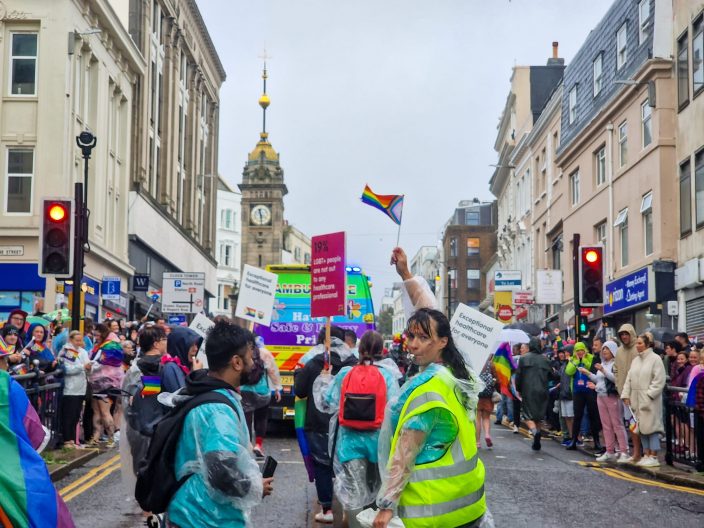
Also of interest
Early Pain Support: Insights From our first Community Drop-In
As part of Rethinking Our Health, we hosted our first community pain drop-in — a chance for people to talk things through early, get reassurance, and feel more confident about managing pain. This blog shares what we learned, and why having the right conversation at the right time really matters.
New RCGP Report Highlights Hidden GP Workload
Like many of us delivering healthcare in collaboration with the NHS, hospices are experiencing the dilemma of not being an NHS organisation but needing to know our way around the landscape of data as if they are.
Data and Analytics: why we work with hospices
Like many of us delivering healthcare in collaboration with the NHS, hospices are experiencing the dilemma of not being an NHS organisation but needing to know our way around the landscape of data as if they are.
